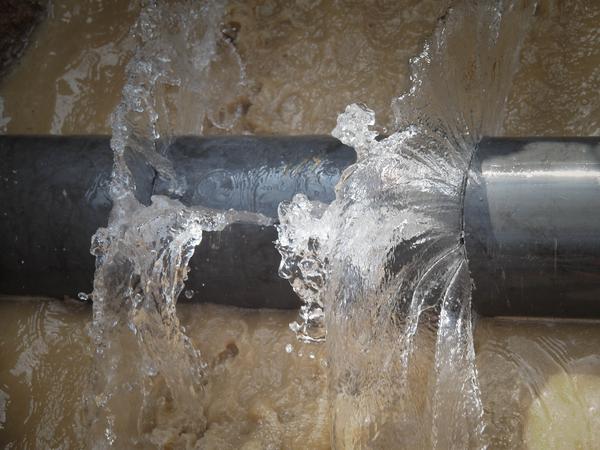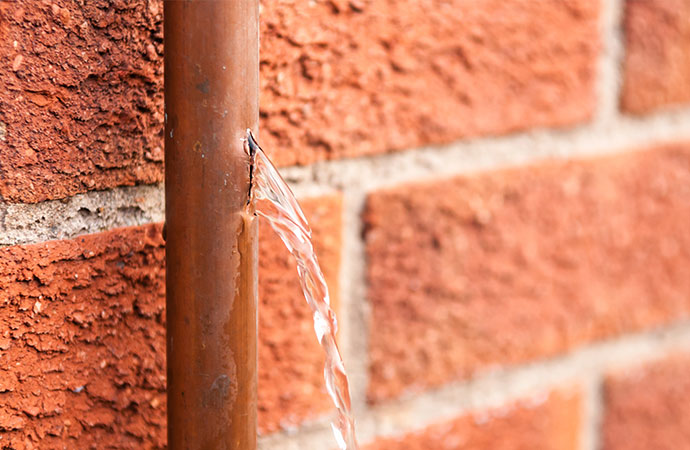A Complete Guide to Septic System Maintenance: Everything You Need to Know
A Complete Guide to Septic System Maintenance: Everything You Need to Know
Blog Article
Almost everyone may have their private rationale when it comes to The Do’s And Don’ts After Water Damage.

What should you do if a water pipeline ruptureds in your residence, producing a mini-waterfall as well as flooding an area of your home? The longer you wait, the more extreme the water damages in your building. For these factors, you require to learn what to in case of a burst water pipe.
Shut down the Key Waterline Shutoff
Look for the neighborhood shut-off valve to turn-off water in one specific location only. This will certainly reduce off the water in your whole residence. Typically, the main shutoff is found outside the residence next to the water meter.
Call Water Damage Reconstruction Pros for Assistance
After shutting the water resource, call the pros for help. Due to the fact that they need to deal with the pipes and also deal with the problems to your home, this is not something you can readily DIY. Look for assistance from a reputable business supplying 24/7 emergency services. With their specialist assistance, you can minimize exacerbation due to the fact that water can seep with your points leading to deformed baseboards, loosened tiles, or damage framework. Don't take this issue gently and look for profession assistance for full assurance.
Document the Damage For Insurance policy
As you are waiting for the pros to show up, record the damages created by the wayward pipeline. Staying proactive with this enables you to file an insurance claim for protection, which will certainly aid you and also your family get back on your feet.
Salvage Things That Can Be Saved
Once you're done taking pictures, peruse the items and take out the most vital ones from the pile. Dry them off and try to preserve as much as you can. Drag them far from wetness so they can begin to dry out.
Beginning the Drying Refine
While waiting for the pros, you can begin the drying procedure. The good news is, water from your waterlines are tidy so you don't have to fret about drain water. Nevertheless, the streaming water may have disturbed the dirt and also particles in your floorboards and also carpetings. So be prepared with gloves as you use containers to dispose out the water. Blot out as much as you can with old towels. You can additionally switch on an electric fan or open home windows to promote air circulation. This will certainly speed up drying as well as deter mold and mildew and also mildew growth.
Experts are the only ones certified to repair the burs pipelines as well as succeeding damage. And also keep in mind, pipes do not just unexpectedly burst. You will normally see red flags like bubbling paint, unusual noises in the plumbing, stuffy odor, caving ceiling, peeling off wallpaper, or water stains. Take notice of these things, so you can nip any kind of issues in the bud.
What should you do if a water pipe ruptureds in your house, producing a mini-waterfall and also flooding a location of your home? For these reasons, you require to learn what to in situation of a ruptured water pipe. After closing the water resource, call the pros for help. With their specialist help, you can alleviate worsening because water can leak via your things resulting in distorted walls, loose ceramic tiles, or damages structure. Fortunately, water from your waterlines are tidy so you do not have to worry regarding sewage system water.
BROKEN WATER PIPES: COST TO REPLACE & WAYS TO FIX A PIPE
CAUSES OF A BROKEN WATER PIPE
A water pipe can break for several reasons depending on the environment you live in, type of pipe, and circumstances.
The most common cause of broken pipes is freezing. If you live in a colder climate, this could happen. When water freezes it increases in volume by 9% and the pressure in the pipes can go from 40 psi to 40,000 psi. Clearly, this could be detrimental to the pipes. Water freezing causes quick expansion, which puts stress on the pipes and could lead them to crack or weaken. When water thaws, it will leak out the cracks. Other changes in water pressure can also cause breakage. Another common cause of broken water pipes is age.
Depending on the material, water pipes can last anywhere from 70-100 years. But the older they get, the more susceptible they are to weakening and corroding. Older pipes coming into contact with another material could speed up the corrosion process as well. PVC pipes can become brittle with age, while copper is prone to corrosion and stress over time. Something that could also potentially break water pipes is when they move. They may move from construction or the house settling. Moving can stress the fixed pipe which may lead to a leak or burst pipe.
HOW MUCH WATER COULD LEAK INTO YOUR HOUSE FROM A BROKEN PIPE?
The amount of water that leaks depend on how big the break in a pipe is. If it is just a minor crack, water will slowly leak out. This isn’t as serious as a full broken pipe, but it can still cause significant damage to your home. Burst pipes can leak up to 10 gallons of water per minute. The amount of water leaked also depends on what appliance is involved. The water line to your refrigerator can leak ½ to 1 gallon per minute depending on water pressure. One toilet supply line may leak 2-3 gallons a minute and a washing machine hose will leak up to 10-12 gallons per minute.
TURN THE WATER OFF
Doing this first is imperative; everything else can wait. You need to deactivate the water supply to stop the flow of water and prevent more water from leaking into your home. Shutting off the water could potentially save you thousands in water damage repairs. Locating the water shutoff valve depends on the climate you live in. For colder climates, the valves are usually inside, such as in the basement. For houses in milder weather, the shutoff valves will probably be outside—either attached to an exterior wall or in an underground box with a removable lid.
OPEN A FAUCET
The next thing to do is to open a faucet or turn on a sink. This will relieve any remaining water pressure in the pipes and ensure a full-shut down.
GET RID OF THE WATER
The quicker you get rid of the water, the less water damage and mold there could be. Use a mop and a shop vacuum to help get clean up the water. Use towels to dry everything the best you can.
CUT AND REMOVE THE DAMAGED PIPE
Once you have shut off the water and drained the damaged water pipe, you can begin to fix the issue. Cut out the damaged section of the pipe with a pipe cutter, ensuring that you also cut one inch extra on each side of the damage. Once you get rid of the broken part of the pipe, you may begin repairs.
https://www.wmhendersoninc.com/blog/broken-water-pipes-cost-to-replace-ways-to-fix-a-pipe/

I discovered that piece on Rules For Handling Water Damage while perusing the internet. Are you aware of another individual who is truly interested in the topic? Please feel free to promote it. Thanks so much for going through it.
Report this page